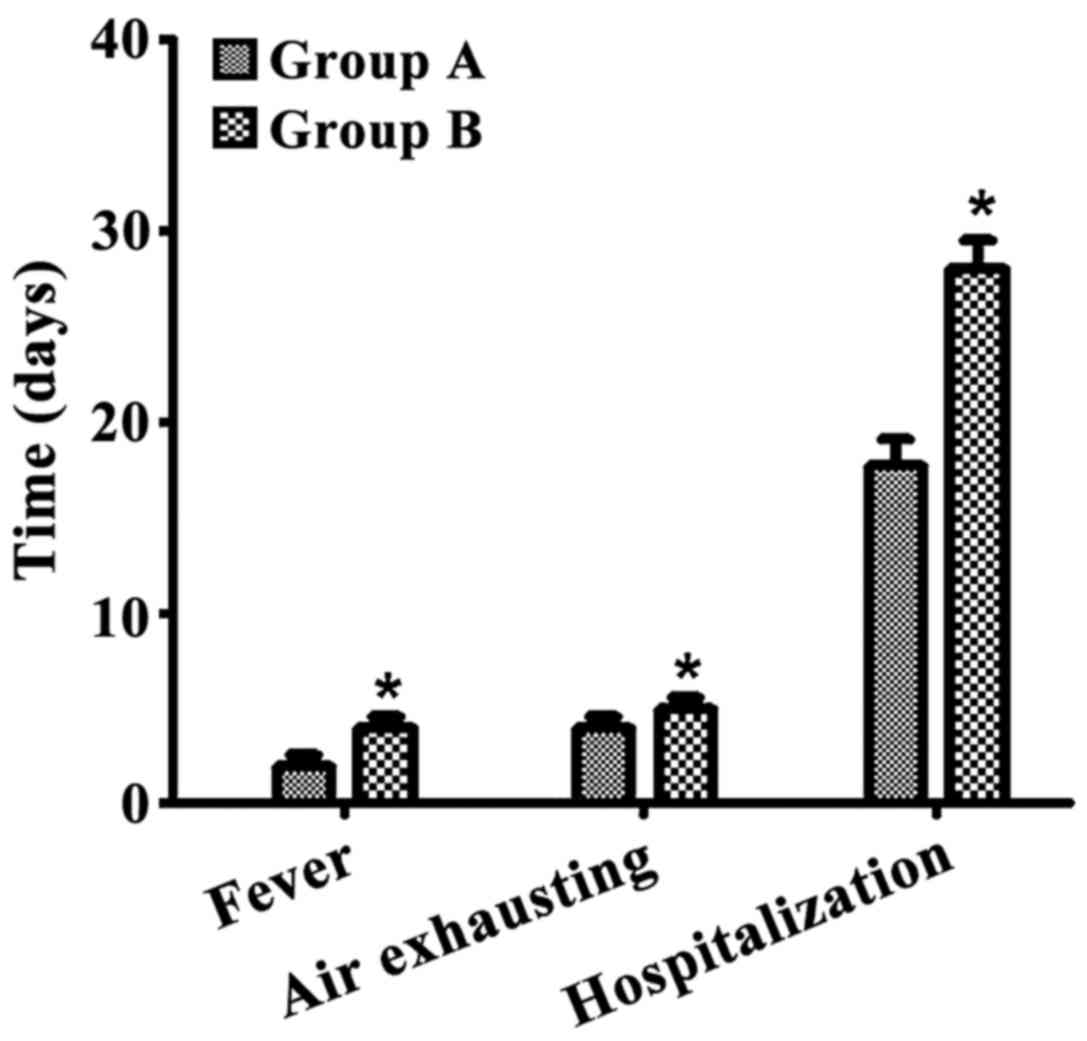|
1
|
Hartgrink HH, Jansen EPM, van Grieken NCT
and van de Velde CJH: Gastric cancer. Lancet. 374:477–490. 2009.
View Article : Google Scholar : PubMed/NCBI
|
|
2
|
Catalano V, Labianca R, Beretta GD, Gatta
G, de Braud F and Van Cutsem E: Gastric cancer. Crit Rev Oncol
Hematol. 71:127–164. 2009. View Article : Google Scholar : PubMed/NCBI
|
|
3
|
Baghestani AR, Daneshva T, Pourhoseingholi
MA and Asadzadeh H: Survival of colorectal cancer in the presence
of competing-risks-modeling by Weibull distribution. Asian Pac J
Cancer Prev. 17:1193–1196. 2016. View Article : Google Scholar : PubMed/NCBI
|
|
4
|
Hu D, Peng F, Lin X, Chen G, Zhang H,
Liang B, Ji K, Lin J, Chen LF, Zheng X, et al: Preoperative
metabolic syndrome is predictive of significant gastric cancer
mortality after gastrectomy: The Fujian Prospective Investigation
of Cancer (FIESTA) Study. EBioMedicine. 15:73–80. 2017. View Article : Google Scholar : PubMed/NCBI
|
|
5
|
Bloomgarden ZT: Obesity and diabetes.
Diabetes Care. 23:1584–1590. 2000. View Article : Google Scholar : PubMed/NCBI
|
|
6
|
Katzmarzyk PT, Janssen I, Ross R, Church
TS and Blair SN: The importance of waist circumference in the
definition of metabolic syndrome: Prospective analyses of mortality
in men. Diabetes Care. 29:404–409. 2006. View Article : Google Scholar : PubMed/NCBI
|
|
7
|
Lin Y, Ness-Jensen E, Hveem K, Lagergren J
and Lu Y: Metabolic syndrome and esophageal and gastric cancer.
Cancer Causes Control. 26:1825–1834. 2015. View Article : Google Scholar : PubMed/NCBI
|
|
8
|
Peng F, Hu D, Lin X, Chen G, Liang B,
Zhang H, Ji K, Huang J, Lin J, Zheng X, et al: Preoperative
metabolic syndrome and prognosis after radical resection for
colorectal cancer: The Fujian prospective investigation of cancer
(FIESTA) study. Int J Cancer. 139:2705–2713. 2016. View Article : Google Scholar : PubMed/NCBI
|
|
9
|
Sasako M, Sano T, Yamamoto S, Kurokawa Y,
Nashimoto A, Kurita A, Hiratsuka M, Tsujinaka T, Kinoshita T, Arai
K, et al: Japan Clinical Oncology Group: D2 lymphadenectomy alone
or with para-aortic nodal dissection for gastric cancer. N Engl J
Med. 359:453–462. 2008. View Article : Google Scholar : PubMed/NCBI
|
|
10
|
Biesen R, Burmester GR and Hiepe F:
Rheumatoid factor or antinuclear antibodies as incidental finding.
Internist (Berl). 55:1157–1164. 2014.(In German). View Article : Google Scholar : PubMed/NCBI
|
|
11
|
Pourhoseingholi MA, Moghimi-Dehkordi B,
Safaee A, Hajizadeh E, Solhpour A and Zali MR: Prognostic factors
in gastric cancer using log-normal censored regression model.
Indian J Med Res. 129:262–267. 2009.PubMed/NCBI
|
|
12
|
Won KB, Chang HJ, Han D, Sung J and Choi
SY: Metabolic syndrome predicts long-term mortality in subjects
without established diabetes mellitus in asymptomatic Korean
population: A propensity score matching analysis from the Korea
Initiatives on Coronary Artery Calcification (KOICA) registry.
Medicine (Baltimore). 95:e54212016. View Article : Google Scholar : PubMed/NCBI
|
|
13
|
Esposito K, Chiodini P, Colao A, Lenzi A
and Giugliano D: Metabolic syndrome and risk of cancer: A
systematic review and meta-analysis. Diabetes Care. 35:2402–2411.
2012. View Article : Google Scholar : PubMed/NCBI
|
|
14
|
Zhou HC, Lai YX, Shan ZY, Jia WP, Yang WY,
Lu JM, Weng JP, Ji LN, Liu J, Tian HM, et al: Effectiveness of
different waist circumference cut-off values in predicting
metabolic syndrome prevalence and risk factors in adults in China.
Biomed Environ Sci. 27:325–334. 2014.PubMed/NCBI
|
|
15
|
Reynolds K and He J: Epidemiology of the
metabolic syndrome. Am J Med Sci. 330:273–279. 2005. View Article : Google Scholar : PubMed/NCBI
|
|
16
|
Corley DA, Kubo A and Zhao W: Abdominal
obesity and the risk of esophageal and gastric cardia carcinomas.
Cancer Epidemiol Biomarkers Prev. 17:352–358. 2008. View Article : Google Scholar : PubMed/NCBI
|
|
17
|
MacInnis RJ, English DR, Hopper JL and
Giles GG: Body size and composition and the risk of gastric and
oesophageal adenocarcinoma. Int J Cancer. 118:2628–2631. 2006.
View Article : Google Scholar : PubMed/NCBI
|
|
18
|
Lee S, Bacha F and Arslanian SA: Waist
circumference, blood pressure, and lipid components of the
metabolic syndrome. J Pediatr. 149:809–816. 2006. View Article : Google Scholar : PubMed/NCBI
|
|
19
|
Wang H, Zhou XB, Zhou YB, Niu ZJ, Chen D,
Wang DS, Lü L and Li Y: Multivariate logistic regression analysis
of postoperative severe complications and discriminant model
establishment in gastric cancer post gastrectomy. Zhonghua Wai Ke
Za Zhi. 46:1902–1905. 2008.(In Chinese). PubMed/NCBI
|
|
20
|
Kim HA, Jeon JY, An JM, Koh BR and Suh CH:
C-reactive protein is a more sensitive and specific marker for
diagnosing bacterial infections in systemic lupus erythematosus
compared to S100A8/A9 and procalcitonin. J Rheumatol. 39:728–734.
2012. View Article : Google Scholar : PubMed/NCBI
|















